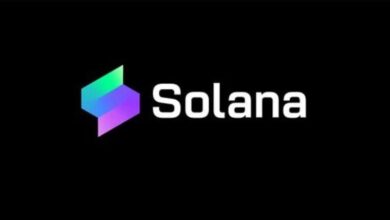Abu Dhabi Digital Authority and Saudi Aramco pilot World Economic Forum Blockchain Toolkit

It is not the first time that Dubai Future Foundation has worked with the World Economic forum on Blockchain. Previously both entities had developed the UAE Blockchain whitepaper and toolkit. With the advent of Corono virus and its effect on global trade systems, entities have felt the urgent need for global cooperation to maintain and strengthen the resilience of international supplychains in an effort to boost economic recovery.
The WEF ( World Economic Forum) in collaboration with Dubai Future Foundation and others developed a blockchain toolkit that is now being piloted by by Abu Dhabi Digital Authority, Hitachi and Saudi Aramco among others.
To help organizations improve future pandemic preparedness and accelerate an economic rebound post COVID-19, the World Economic Forum is releasing the Redesigning Trust: Blockchain Deployment Toolkit which enables leaders to maximize the benefits and minimize the risks of the technology. Resilience in supply chains depends on trust, transparency and integrity, which can be improved through the responsible deployment of blockchain technologies that offer a “shared truth”.
The first of its kind toolkit is the culmination of more than a year of efforts to capture best practices from blockchain deployment across industries. Drawing on the global expertise of more than 100 organizations – including governments, companies, start-ups, academic institutions, civil society, international organizations and technology and supply chain experts ,the toolkit helps companies manage the complexities of deploying this new technology and will accelerate its positive impact.
According to Nadia Hewett, Blockchain and Digital Currency Project Lead, World Economic Forum USA. “The blockchain deployment toolkit is essential for designing solutions that work for a multitude of actors, including smaller players who may not have access to the resources required to unlock the value of blockchain technology. For this reason, the toolkit can level the playing field for small and medium-sized enterprises. There are many lessons to learn from the current pandemic and this toolkit is a starting point for improving long-term pandemic preparedness and accelerating an economic recovery led by public-private cooperation.”
The toolkit has been piloted in a variety of different contexts by organizations developing blockchain solutions within their supply chains, including the Abu Dhabi Digital Authority, Hitachi, Saudi Aramco as well as a number of SMEs. Commenting on how the toolkit helped the Abu Dhabi Digital Authority move forward quickly on their implementation strategy, Dr. Abdulla Al Kendi, Executive Director, ADDA Technologies and Policies Sector, said: “The toolkit provided a lot of objectivity when attempting to design a consortium. We were able to put our judgements and decisions aside to design the consortium.”
On the other hand, Khalfan Belhoul, CEO of Dubai Future Foundation, said: “The UAE has long used technology as a means to innovate, drive efficiency, and develop the country’s key strategic sectors. We at Dubai Future Foundation, through the UAE Centre for the Fourth Industrial Revolution (C4IR UAE), develop solutions to our current and future challenges through 4IR technology; and COVID-19 has shown us that there is a real and urgent need to accelerate the implementation of these technologies.To this end the C4IR UAE has contributed to the World Economic Forum Blockchain for Supply Chain Toolkit. The Toolkit the offers tangible next steps to implementing a blockchain system for greater transparency, visibility and accountability across supply chains. At the C4IR, we support entities and businesses to deploy these resources in for their processes, business continuity plans and enhanced technology development.”
“The ‘Blockchain Deployment Toolkit’ sets a new benchmark for a comprehensive guidebook to design blockchain-enabled solutions. At a time when the technology is nascent and evolving, it helps accelerate alignment and understanding of the many considerations that both the public and private sectors face to deploy solutions responsibly,” says Linda Pawczuk, Global Blockchain and Digital Assets Leader, Deloitte Global, United States. “Deloitte intends to leverage the toolkit across its blockchain practice of over 2,000 professionals to guide clients across sectors and industries in developing robust blockchain networks in supply chain and finance. Further, Deloitte plans to integrate the toolkit frameworks into learning curriculums to drive a consistent approach in developing blockchain business models that account not only for strategy and product, but also for often-overlooked issues around enterprise risk, tax implications, and financial compliance.”
The toolkit was created by the World Economic Forum with the Centre for the Fourth Industrial Revolution Network Fellows from Hitachi, Deloitte and Saudi Aramco. Among the many others who contributed to its development, in over 50 countries, were the Centre for the Fourth Industrial Revolution UAE, the Port of Los Angeles, Latham & Watkins, Cardiff Business School, University of Berkeley, Tech Mahindra, Maersk Angola, World Bank, Inter-American Development Bank, and the World Food Program. Full contributor and project community list available here.
As for the uses cases that utilized the Blockchain toolkit there were two main ones in the GCC. One with the Abu Dhabi Digital Authority Case study and one with Saudi Aramco.
The Abu Dhabi Digital Authority Case Study:
The challenge: The Abu Dhabi Digital Authority sought to develop and launch its own blockchain strategy and guidance documentation. This guidance document would be used to support Abu Dhabi government entities in implementing blockchain across the public sector digital infrastructure. This was in line with the UAE’s federal blockchain strategy, which aims to conduct 50% of the nation’s government transactions using blockchain by 2021. Prior to the trial process, ADDA had been facing challenges developing a full set of guidelines for blockchain technology, especially as emerging technologies consistently changing and there is no one best practice to benchmark against.
The implementation: The ADDA identified a clear use case for the toolkit and tested it with the Centre for the Fourth Industrial Revolution UAE, applying the toolkit questions to drive the development of ADDA’s own guidelines and implementation strategy. The answers resulting from those questions provided important clarity in what the ADDA needed to do, and provide support with, in the implementation phase, explained Dr. Abdulla Al Kendi, Executive Director, ADDA Technologies and Policies Sector.
With the guidance of the toolkit, the ADDA was able to clearly articulate the business problems that could be solved using blockchain technology and ensure that all the stakeholders of a given chain are aligned in achieving these business objectives. Understanding how to achieve this alignment was a major achievement for ADDA.
Lessons learned: Those looking to develop their own blockchain strategies should consider three key aspects of blockchain implementation – the required governance, personal data protection, and the interoperability of the chains. This would lead to higher value from blockchain technology.
Saudi Aramco Case Study:
Saudi Aramco has utilized the newly developed Blockchain toolkit to aid in completing two critical use cases in supplier management and credential verification. The first use case identifies a solution to the long and time consuming processes of supplier management, which can be utilized in wide spectrums of industry challenges that cannot be resolved with the current technologies such as swift supplier on-boarding and real-time supplier information. The second use case is to identify an adoption strategy for credential verification and assurance of degree authentication, which will greatly reduce the verification time and prevent certificate and degree fraud. In both use cases the toolkit provided Saudi Aramco with a clear checklist to ensure all areas and aspects are covered during the planning and implementation.





